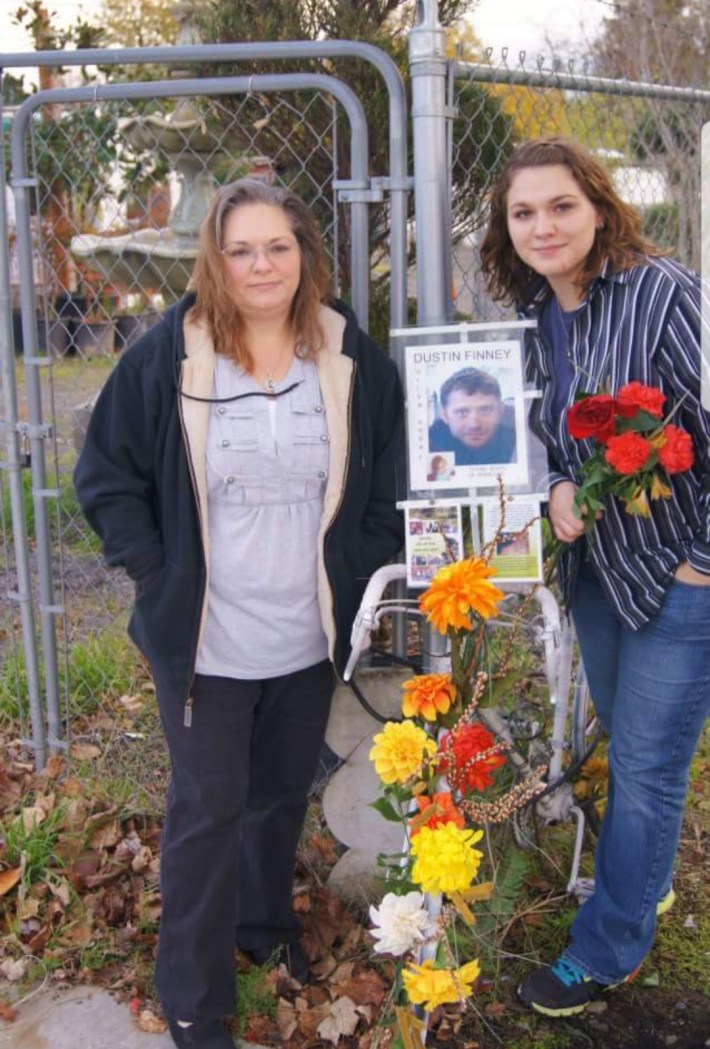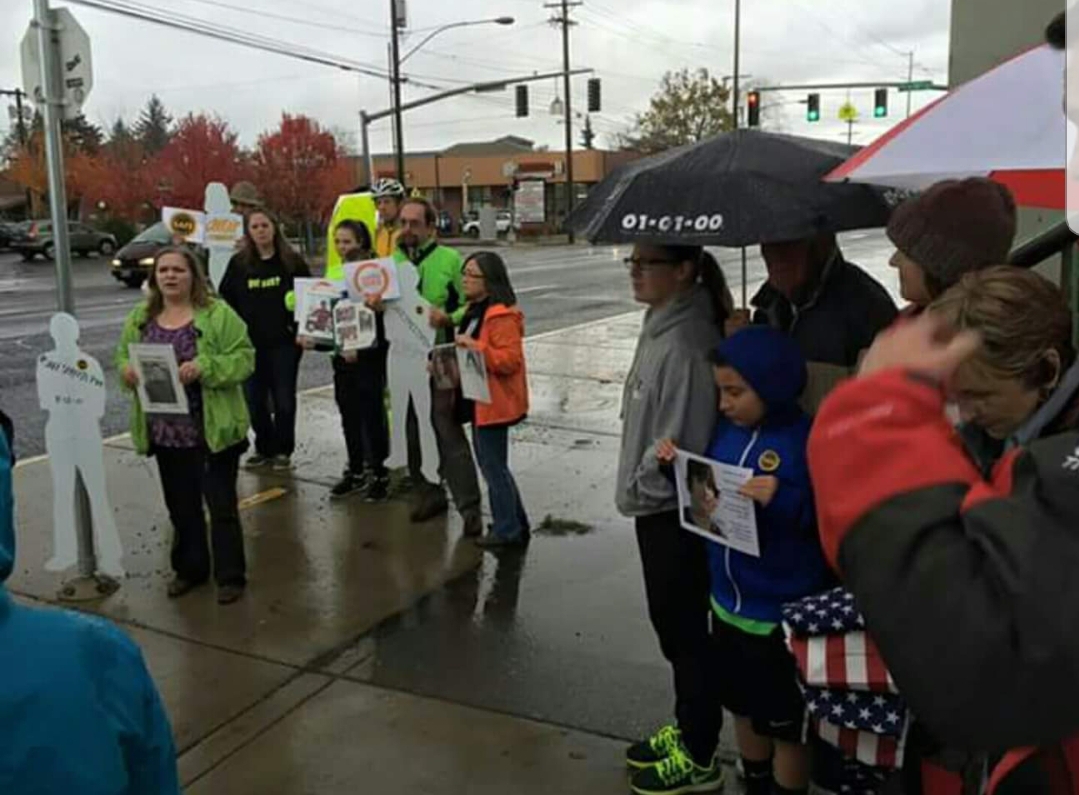Kristi Finney had known people throughout her life who'd been victimized by vehicular violence. But nothing can prepare you for losing a child.
In August, 2011, a drunk driver swerved and struck her son Dustin, 28, as he was riding in a bike lane in Portland. "I instantly hated everybody," Finney told Streetsblog. "I instantly didn’t trust anybody. I didn’t even trust myself."
With time, however, Finney found a way to channel the grief and pain and isolation into action. Since losing her son, Finney has become one of the Portland region's most energetic and compelling advocates for traffic safety reforms. She is the founder of Oregon and Southwest Washington Families for Safe Streets, modeled after the chapter in New York City.

Finney now speaks around the Portland region about safe driving, and she advocates for city-level policy reforms. She feels compelled to act so other mothers and fathers don't get a knock on their door like she did.
"I still didn’t get it until my own son died. I think that’s how entrenched we are," she said. "'These are just accidents and they just happen. It’s inevitable.' That’s what I thought if I thought about it at all."
Finney found herself obsessively reading every news item about her son, including the comments section. Even though Dustin was killed by a drunk driver who was eventually sentenced to five years in prison, she encountered a surprising lack of sympathy.
"The comments is what got to me more than anything else," she said. "'He was on a bike he was asking for it.' 'He took his chances. He lost.'"
Finney had never been an activist. But during the four-month trial for her son's killer, she resolved to speak up.
"I can’t be quiet about this," she said. "I’ve got to let other people know that this could happen to their family."
Soon after Dustin's death, Mayor Sam Adams invited Finney to attend Portland's annual transportation safety summit. She spoke about her loss and why the city's initiatives to prevent crashes matter, and she met other families whose loved ones had been killed in traffic. The momentum took off from there.
"I would get calls from the media if there was a bicycle crash because people knew about me," she said.
Finney started talking about the trauma she went through to "high-risk drivers" -- part of a court program to prevent repeat offenses by people arrested for DUI or who've had their license suspended for other dangerous driving offenses. She now recounts what it was like to lose Dustin in six different counties every month.
Jonathan Maus, the publisher of Bike Portland, says Kristi stands out among the many advocates he's encountered while covering Portland's bike scene the last 13 years.
"She's the epitome of a citizen activist -- learning as she goes, and influencing many people along the way," said Maus. "And the fact that she does all of this while taking care of her family and having a day job -- and in the face of massive resistance from a status quo that often feels overwhelming to many of us -- is extremely impressive and I have the utmost respect for her.”
Currently, Finney and Families for Safe Streets are campaigning to get the city to redesign Division Street, where Dustin was killed. It's a nine-lane road and one of the most dangerous in the city. In 2016 alone, five people were killed in crashes on Division Street.
Portland's Families for Safe Streets now has a Facebook group with about 60 members, and about six are heavily engaged in advocacy. Speaking up and revisiting such a painful experience isn't an easy path, and most people Finney approaches about joining her decline to do so.
"They said, 'Why should we bother, because nobody cares anyway,'" she said. "It’s really difficult to speak out under the best of circumstances."
Finney says a couple of things keep her going. "Those of us who do speak out usually do so for two reasons: We get to keep our loved one's memory alive (we are soooo afraid they'll be forgotten) and we want to save other's lives."






